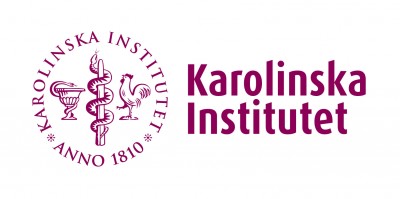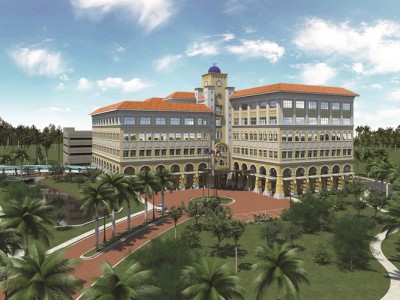NSU Newsroom
SharkBytes
Horizons
This version of NSU News has been archived as of February 28, 2019. To search through archived articles, visit nova.edu/search. To access the new version of NSU News, visit news.nova.edu.
This version of SharkBytes has been archived as of February 28, 2019. To search through archived articles, visit nova.edu/search. To access the new version of SharkBytes, visit sharkbytes.nova.edu.
Nova Southeastern University Announces New NSU Cell Therapy Institute
Nova Southeastern University (NSU) is now at the forefront of conducting pioneering cell-based biomedical research with the launch of the new NSU Cell Therapy Institute, an international collaboration with prominent medical research scientists from Sweden’s world-renowned Karolinska Institutet (KI). KI is globally recognized for its Nobel Assembly, which awards the Nobel Prize in Physiology or Medicine annually. The Institute will be located in NSU’s soon-to-be-completed Center for Collaborative Research (CCR), one of the largest and most advanced research facilities in Florida at 215,000 sq. ft. with state-of-the-art laboratories.
The NSU Cell Therapy Institute is a component of the university dedicated to the discovery and development of innovative translational biomedical research, focused on the potential of cell-based therapies to prevent, treat and cure life-threatening and debilitating diseases. The Institute is accelerating the advancement of next-generation approaches to precision medicine such as targeted immunotherapy and regenerative medicine with an initial focus on targeting cancers, heart disease and disorders causing blindness.
Karolinska Institutet’s Dean of Research, Professor Hans-Gustaf Ljunggren, M.D., Ph.D., discussed the value of combining respective research synergies with scientists at NSU, “Some leading members of our faculty will serve as visiting professors at NSU and establish labs on site at the CCR. By collaborating closely, we can make greater and faster progress in advancing new and better approaches to using cell-based therapies to eradicate disease. Over the course of our 205-year history, scientists at Karolinska Institutet have contributed many important medical breakthroughs. The NSU Cell Therapy Institute represents our continued commitment to share knowledge and co-develop new medicines through important international partnerships.”
“NSU is proud to partner with one of the world’s leading medical universities and connect some of the most accomplished researchers to help achieve the lofty goal of developing effective treatments and therapies that could positively impact so many people in our global community,” said NSU President Dr. George Hanbury. “As NSU nears the completion of its vast Center for Collaborative Research and is taking the necessary steps to add a teaching and research hospital on our campus, it is essential for us to focus on this level of collaboration and scientific discovery.”
Karolinska Institutet is one of the largest and most prestigious medical universities in the world, consistently ranked among the top universities globally.
NSU recently hired a world-class team of researchers, including Richard Jove, Ph.D., who will lead the NSU Cell Therapy Institute. Dr. Jove is best known in Florida for his work as professor and director of the Molecular Oncology Program at the Moffitt Cancer Center Research Institute in Tampa for a decade and as associate director for basic research of Moffitt’s National Cancer Institute (NCI) Comprehensive Cancer Center. Among his many other accomplishments, he also served as chair of molecular medicine and as director of the Beckman Research Institute at City of Hope in Los Angeles.
BioFlorida’s President & CEO, Nancy Bryan, applauded the historic collaboration, “I congratulate NSU and Karolinska Institutet for combining their multi-disciplinary talents and capabilities to establish the Cell Therapy Institute, further strengthening the caliber of biomedical research in Florida. I anticipate many new important collaborations to be formed as a result, accelerating our life science industry’s growth.” BioFlorida is planning to host a special celebration event for its members at the CCR when the new facility opens.
Set to open in Spring 2016, the CCR will provide wet and dry labs for many of NSU’s innovative researchers: a General Clinical Research Center, an outpatient facility that will provide a centralized clinical research infrastructure to benefit investigators in multiple disciplines; a technology incubator offering partnerships with innovative companies; and the NSU Cell Therapy Institute. The CCR will also house NSU’s Institute for Neuro-Immune Medicine; NSU’s Rumbaugh-Goodwin Institute for Cancer Research; the Emil Buehler Research Center for Engineering, Science and Mathematics; and the U.S. Geological Survey (USGS), which partners with NSU on collaborative inter-disciplinary research involving greater Everglades restoration efforts, hydrology and water resources and more.
In addition to the CCR, Hospital Corporation of America (HCA) East Florida opened an emergency room on NSU’s Fort Lauderdale/Davie campus in May 2015. The facility will serve as the cornerstone of the future relocation of Plantation General Hospital to the same site, by HCA East Florida. The 200-bed hospital will serve the surrounding community and eventually be a teaching and research facility integrated with NSU’s clinics, research centers and clinical trials. With these milestone additions, students in a variety of the health professions, including osteopathic (D.O.) and allopathic (M.D.) medicine programs, as well as engineering students and those pursuing other fields of study, will have expanded opportunities for research and training to prepare them for important careers serving the citizens of their communities.
